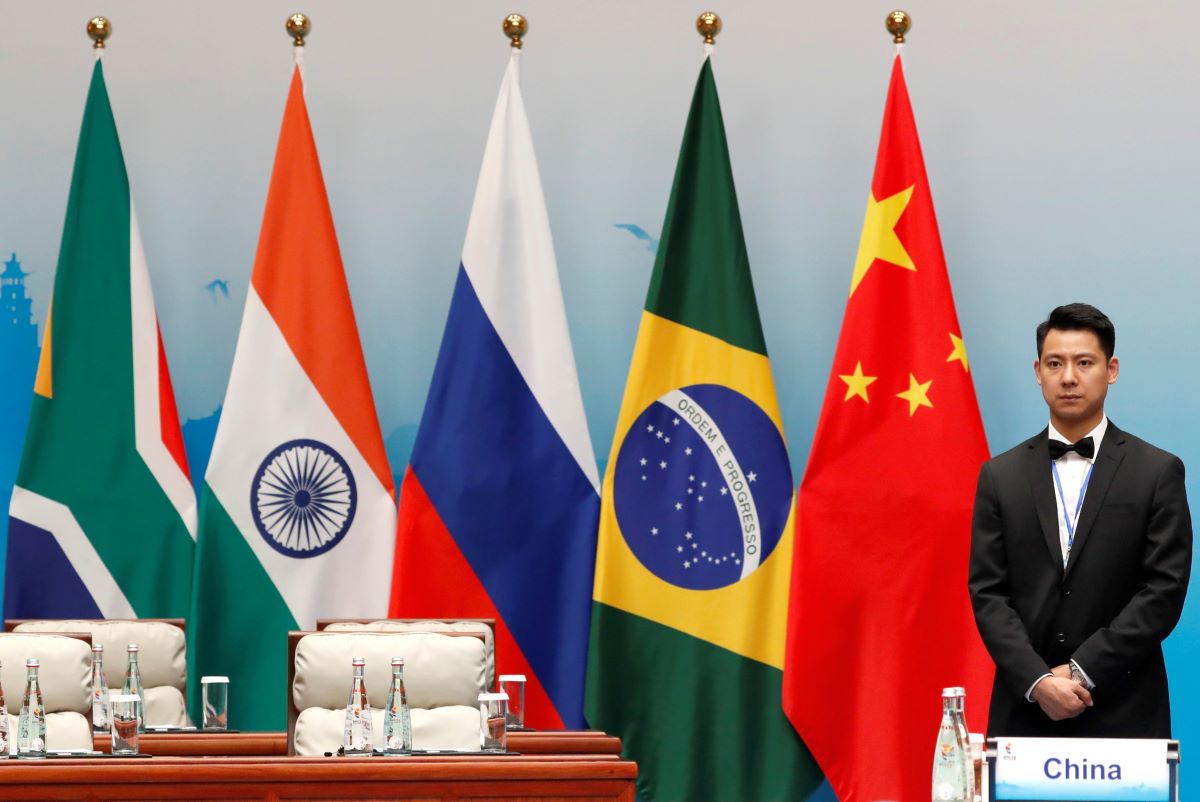The World Health Organization’s declaration of a public health emergency for mpox is the second such alert on the infectious disease in barely two years — and experts fear this one is even more serious.
The latest outbreak, centred on Democratic Republic of Congo and identified in about a dozen African countries, is driven by the more severe clade 1 type of the virus. Sweden this week reported the first clade 1 case outside Africa.
The WHO was preparing on Friday to host an emergency meeting to discuss equitable access to tests, treatments and vaccines.
Its mpox warning was a “stark reminder of the vital importance of early intervention when infectious diseases are still geographically contained”, said Boghuma Titanji, assistant professor of medicine at Emory University in the US.
What is mpox and what triggered the emergency?
Mpox, formerly known is monkeypox, is a viral disease that causes skin rashes and mucosal lesions such as mouth sores. In severe forms, it can lead to brain inflammation, sepsis and even death.
It is an example of a so-called zoonotic disease. These have been transmitted from animals to humans and are a leading public health concern as possible triggers of pandemics.
The mpox virus was discovered in 1958 in captive monkeys and the first human case was reported in DRC in 1970.
The pathogen, similar to the one that causes smallpox, is spread by contact with infected animals, people or materials. It can be transmitted during prolonged intimate face-to-face interactions such as talking or breathing, according to the US Centers for Disease Control and Prevention.
The health emergencies announced by WHO and the Africa Centres for Disease Control and Prevention follow a surge in cases on the continent.
At least 12 countries have reported outbreaks. More than 17,000 suspected cases and 500 deaths have so far been recorded, said Africa CDC, adding that this is likely to be a big underestimate.
What’s different from the last mpox emergency?
The previous international mpox emergency in 2022-23 was driven by the clade 2 virus type. This time, it is the more dangerous clade 1 version — in particular a strain known as clade 1b — that has spread rapidly in the DRC.
Clade 1b appears to be transmitted in the DRC mainly through sexual activity, the WHO said. Swedish authorities said the clade 1 case they reported was in someone who had visited an infected area in an African country.
The role of the clade 1 virus is troubling because it is associated with more severe disease and higher death rates than clade 2. There is also some evidence that the clade 1 pathogen is more transmissible between humans.

How should people protect themselves?
Preventive measures other than vaccination can be taken to prevent mpox from spreading, by avoiding proximity with infected individuals or items that they have used, such as bedsheets
The WHO advises that people isolate to stop the virus from spreading. People are infectious until all their lesions have crusted over, scabs have fallen off and a layer of skin forms underneath, according to the health body’s guidance.
The clade 1 case in Sweden is the first sign of what scientists see as an inevitable international spread. Pakistan has also confirmed a case of mpox from a traveller arriving from the Middle East, but did not say if the case is related to clade 1.
What is being done to control the outbreak?
The WHO is working closely with Africa CDC, affected countries and non-governmental organisations to rein in the disease’s spread, director-general Tedros Adhanom Ghebreyesus said on Wednesday.
This has included on-the-ground teams taking blood samples and carrying out genomic sequencing, contact tracing and supporting health workers with training.
More data is needed on the transmissibility and impact of the clade 1b virus, scientists say.
To support surveillance efforts, WHO has released $1.45mn of its emergency funding and said it needs at least $15mn in immediate additional funds from donors.
But surveillance and patient care are very challenging in areas such as the eastern DRC, where there is a protracted conflict between armed rebels and the government.
Experts have called for vaccines to cover those most at risk and prepare for future outbreaks — but few supply deals have been inked. The Africa CDC said 10mn doses will be needed.

Two mpox vaccines are recommended by WHO’s immunisation advisory group. DRC and Nigeria have recently approved both.
Bavarian Nordic, one of the vaccine makers, said it could supply 10mn doses by the end of 2025, if donors place enough orders. The EU said this week that it would send more than 215,000 jabs from the Danish manufacturer to the Africa CDC.
“If we want a long-term solution, we need to consider broader vaccination of the entire population in areas where mpox outbreaks occur, to avoid the risk of future outbreaks getting so large,” said Michael Marks, professor at the London School of Hygiene & Tropical Medicine.
Could this evolve into the next pandemic?
The European Centre for Disease Prevention and Control warned on Friday that it expects more imported cases to be reported in Europe, but said mpox’s spread should be containable.
The “likelihood of sustained transmission in Europe is very low provided that imported cases are diagnosed quickly and control measures are implemented”, the ECDC said. There is no evidence mpox spreads easily like Covid, via respiratory droplets and airborne particles.
Nigeria, Africa’s most populous country, said this week that travellers entering the country at airports in the capital Abuja and Lagos, its economic hub, would be required to complete online mpox health declaration forms.
As during the Covid-19 pandemic, one of the biggest challenges is to ensure that the countries worst affected receive adequate resources, particularly if healthcare systems are already poorly resourced or under pressure.
In war-ravaged eastern DRC, healthcare provision is already stretched to the limit by malnutrition, measles and cholera.
The bulk of the country’s mpox cases are in under-15s — and children are more likely to die from the virus than adults, said Greg Ramm, country director for the charity Save the Children.
“To add a new deadly virus that is aggressively attacking children to the mix is a cruel stroke of fate,” he said.
Additional reporting by Aanu Adeoye in Lagos and Andres Schipani in Nairobi
Credit: Source link














